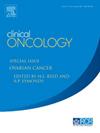肿瘤学多学科小组会议决策质量:一项结构化观察研究。
IF 3
3区 医学
Q2 ONCOLOGY
引用次数: 0
摘要
目的:多学科会议(MDMs)在癌症治疗中至关重要,越来越多的人关注提高决策质量。国际上已经使用了经过验证的工具来评估MDM性能。然而,没有在澳大利亚范围内进行研究。本研究评估了澳大利亚三个附属学术机构肿瘤学MDMs的决策质量。材料和方法:这项前瞻性观察性研究包括澳大利亚新南威尔士州西南悉尼地方卫生区三个癌症中心的14个不同的mdm。两名训练有素的观察员观察了每个肿瘤部位随机选择的四个mdm,使用经过验证的决策观察度量(MDT-MODe)工具评估信息质量和团队贡献。行为按照李克特量表评分,从1(与定义的最佳行为相反)到5(循证最佳行为)。结果:共观察MDMs 64例(N = 498例),平均每次会议7例(范围:2 ~ 15例)。在99%的案例中,管理层都做出了决定。与影像学(M = 4.10, SD = 1.52)、病理(M = 3.73, SD = 1.54)和病史(M = 4.60, SD = 0.73)相比,对心理社会因素(Mean (M) = 1.27,标准差[SD] = 0.70)、合并症(M = 1.69, SD = 1.13)和患者观点(M = 1.12, SD = 0.51)的研究不够全面(P < 0.05)。在学科贡献方面,癌症专科护士得分明显低于其他团队成员(M = 1.04, SD = 0.38) (P < 0.05)。信息的质量在mdm中是一致的,平均得分在2.5到2.99之间,但是团队贡献的质量变化更显著。结论:使用一种经过验证的工具来评估mdm,为mdm的决策质量提供了有价值的见解。提供的综合医疗信息始终是高标准的,但团队的贡献各不相同,心理社会问题、合并症和患者偏好没有得到很好的考虑。这些发现为向发展中国家提供反馈提供了机会,有助于确定潜在的干预措施,以提高决策质量。本文章由计算机程序翻译,如有差异,请以英文原文为准。
Quality of Decision-making at Oncology Multidisciplinary Team Meetings: A Structured Observational Study
Aims
Multidisciplinary meetings (MDMs) are crucial in cancer care, with increasing attention on improving the quality of decision-making. Validated tools have been utilised to assess MDM performance internationally. However, no studies have been performed within the Australian context. This study evaluates the quality of decision-making at oncology MDMs across three affiliated academic institutions in Australia.
Materials and methods
This prospective observational study encompassed 14 different MDMs across three cancer centres in South Western Sydney Local Health District, NSW, Australia. Two trained observers observed four randomly chosen MDMs per tumour site, assessing the information quality and the team contributions, using the validated Metric for the Observation of Decision-Making (MDT-MODe) tool. Behaviours were scored on a Likert scale from 1 (behaviour contrary to the defined optimum) to 5 (evidence-based optimal behaviour).
Results
A total of 64 MDMs (N = 498 patients) were observed, with an average of seven cases per meeting (range: 2-15). Management decisions were made in 99% of the cases. Psychosocial factors (Mean (M) = 1.27, standard deviation [SD] = 0.70), comorbidities (M = 1.69, SD = 1.13) and patient's views (M = 1.12, SD = 0.51) were less comprehensively addressed compared to radiology (M = 4.10, SD = 1.52), pathology (M = 3.73, SD = 1.54) and patient history (M = 4.60, SD = 0.73) (P < 0.05). Regarding disciplinary contributions, cancer specialist nurses scored considerably lower (M = 1.04, SD = 0.38) compared to other team members (P < 0.05). The quality of information was consistent across MDMs, with mean scores of 2.5 to 2.99, however quality of team contributions varied more significantly.
Conclusion
Evaluating MDMs using a validated tool provides valuable insights into decision-making quality across MDMs. There was a consistent high standard of comprehensive medical information presented, but team contributions varied and psychosocial issues, comorbidities and patient preferences were less well considered. These findings provide an opportunity for offering feedback to MDMs, facilitating the identification of potential interventions to improve the quality of decision-making.
求助全文
通过发布文献求助,成功后即可免费获取论文全文。
去求助
来源期刊

Clinical oncology
医学-肿瘤学
CiteScore
5.20
自引率
8.80%
发文量
332
审稿时长
40 days
期刊介绍:
Clinical Oncology is an International cancer journal covering all aspects of the clinical management of cancer patients, reflecting a multidisciplinary approach to therapy. Papers, editorials and reviews are published on all types of malignant disease embracing, pathology, diagnosis and treatment, including radiotherapy, chemotherapy, surgery, combined modality treatment and palliative care. Research and review papers covering epidemiology, radiobiology, radiation physics, tumour biology, and immunology are also published, together with letters to the editor, case reports and book reviews.
 求助内容:
求助内容: 应助结果提醒方式:
应助结果提醒方式:


